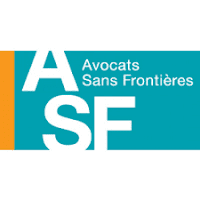ads1
Consultancy
Consultancy at Avocats Sans Frontières (ASF) November, 2022
Job Description
The
extractives sector has been growing over the past couple of years in
Tanzania, particularly in northern regions rich in minerals, and in
areas affected by the transnational East African Crude Oil Pipeline.
While a key driver for economic development, such projects may also have
potential harmful impacts for surrounding communities, such as
environmental destruction, the exacerbation of economic or gender
inequality, the rise of a precarious job market with a lack of decent
working conditions, and land rights as well as other human rights
violations. In this context, it is
fundamental for those suffering human rights violations to be able to
voice their complaints, find redress for their grievances and hold those
who commit harm accountable for their actions.
Recommended:
General objectives
As
part of its activities in Tanzania, ASF is looking for a national
consultant to conduct a study on available remedies in the field of
natural resource governance in Tanzania. The study will seek to inform
legal assistance activities by providing an account of current remedies
to the human rights impacts of extractive industries in four regions of
Tanzania (Tanga, Mara, Shinyanga and Manyara).A secondary objective will
also be to strengthen evidence-based advocacy on the issue of access to
remedy.
Specific objectives
1. Provide an overview of existing remedy mechanisms at national and local levels.
2.
Explore the experience of local communities and legal aid stakeholders
in engaging with these remedy mechanisms, particularly with regard to
the UNGPs on Business and Human Rights.
3. Map out Legal Aid Service Providers (LASPs) in the four selected regions.
4.
Offer practical recommendations for the project moving forward,
including advice to legal aid stakeholders on how best to engage with
each remedy mechanism.
Outputs
· A research report
mapping remedy pathways, experiences from LASPs and local communities in
engaging with them, and practical recommendations on improving legal
assistance strategies.
· A companion booklet for LASP staff giving an
overview of the main referral pathways which can be resorted to
depending on the characteristics of a case, and relevant practical
advice.
The consultant will have to show the following qualifications and abilities:
1. A masters’ degree in law, social sciences, human rights, or any related discipline.
2. Experience in the field of natural resource governance and extractive industries in Tanzania.
3. Experience conducting social research, particularly qualitative research with local populations.
4. Excellent English speaking and writing skills.
5. Good Swahili speaking and writing skills.
6. Knowledge of local languages (desirable)
7. Experience conducting consultancy assignments with other international NGOs (desirable)
Read Also:
25 working days from December 1st 2022
How to apply
Applications must be submitted before November 21st 2022. The applicant should be available for an inception meeting (physically) the week of the 28th of November 2022. The following documents must be sent:
· A cover letter explaining the applicants’ motivation for undertaking this assignment
· A CV detailing the applicant(s) relevant qualifications and experience, including the name of at least two referees.
· A financial proposal detailing the activity’s anticipated costs, including the applicant(s) daily fees.
· A short technical proposal detailing the applicant’s understanding of the study’s objectives, methodology, and data collection, as well as a proposed timeline.
The applicant(s) should also kindly declare their availability in November and December 2022.
Applications must be submitted to Lucie Benaiteau (lbenaiteau@asf.be) and Nicole Kaneza (nkaneza@asf.be) with the following subject line: TZ Remedy Study – [Name of applicant]ads2
